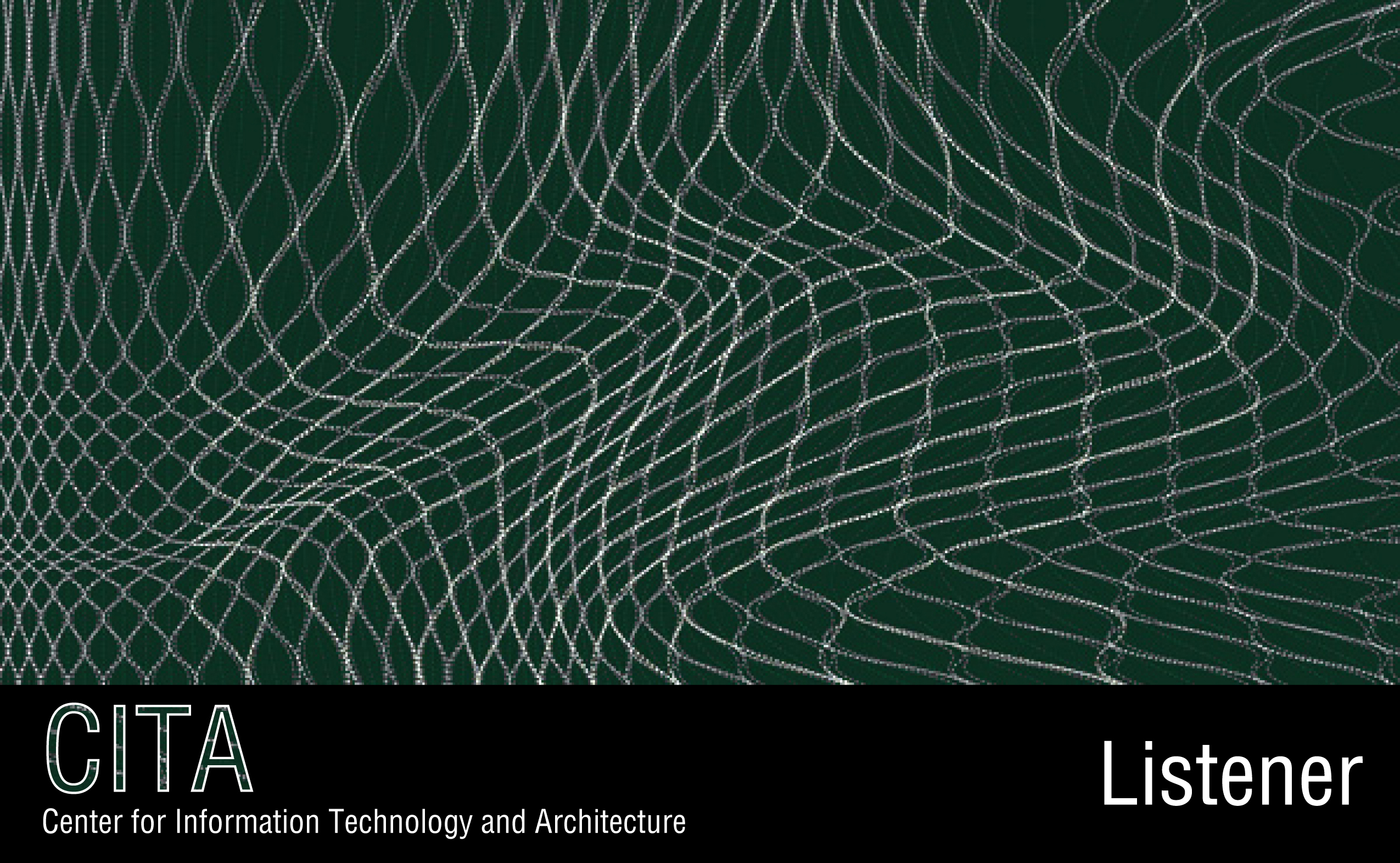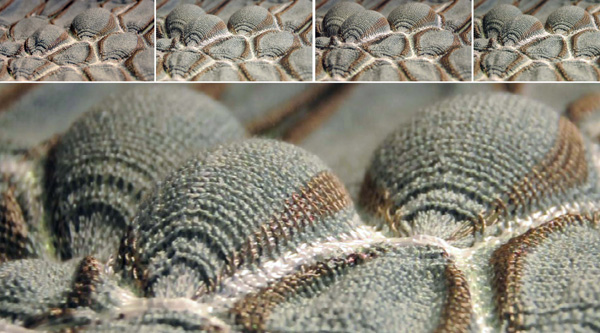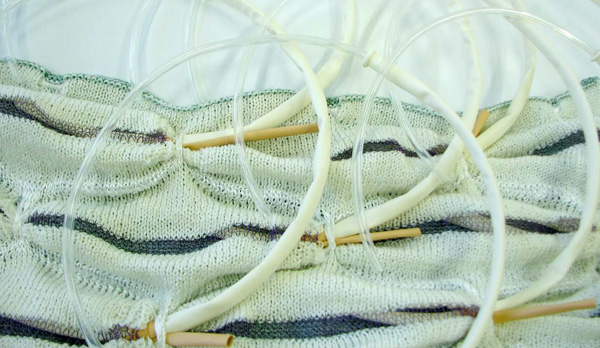CITA is an innovative research environment part of the Royal Danish Academy of Architecture that explores the emergent intersections between architecture and digital technologies. Identifying core research questions into how space and technology can be probed, CITA seeks to investigate how the current forming of a digital culture impacts on architectural thinking and practice. The program’s projects are broken down into four disciplines: digital formation, building information modeling, interface ecologies, and behavioral architectures.
Listener CNC Knitting is one such project to come out of the behavioral architectures program and explores the idea of a textile membrane that has an inherent capacity to sense and react to its surrounding. Collapsing the idea of the controlled and the controlling, Listener is the making of a material that has its own, autonomous, relationship to its environment. The material becomes sensitive as it registers changes in the conductive flow through the material. As the material moves, or as users touch and interact with the material, they actuate the sensor, which in turn informs a microprocessor that ultimately switches on and off an air blowing device. The textile is treated as a composite material that through its inherent conductivity allows for the passing of computational signals, but also through its exceptional structural strength, and through its treatment, gains new properties.




